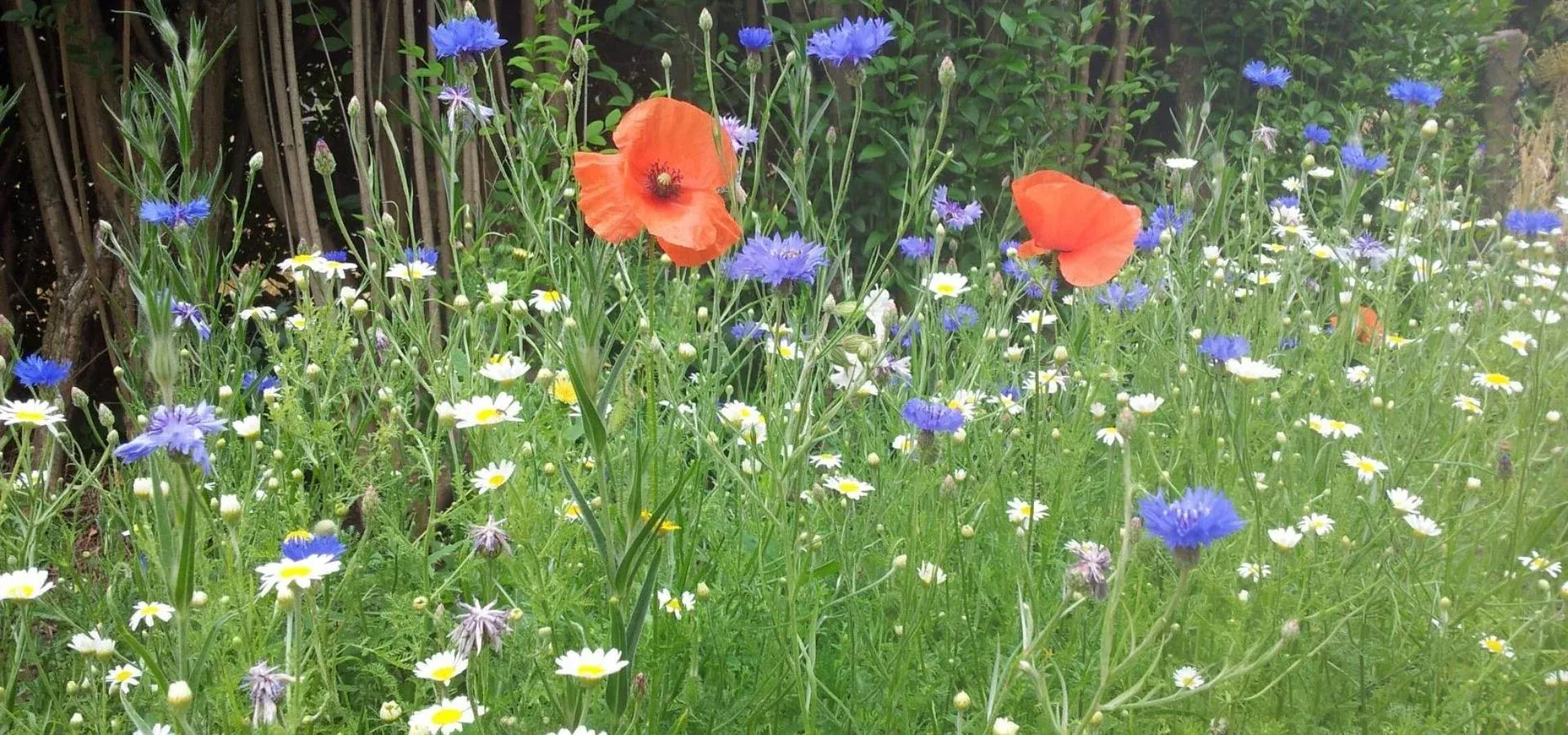The Importance of No Mow May
And why this year I might mow some of my lawn just before it starts!!!

And why this year I might mow some of my lawn just before it starts!!! Every year Plant life has a #NoMowMay campaign to encourage those of us lucky enough to have a green space of our own to do, well nothing!! They want us to put our lawn mowers away for the whole month of May and let the wildflowers in our lawn grow and provide our pollinators with a rich source of nectar to help sustain and protect them.
Then during the last weekend in May you can take part in the Every Flower Counts survey to record what flowers have grown in your lawn. This is an amazing Citizen science project that asks you to look for 26 different species of flower and count how many you have in a metre square of your lawn (which you randomly choose by throwing a ball over your shoulder - no biased data here!!). These particular flowers have been selected because it is known how much nectar each of these plants produce. So wonderfully if you take part in the Every Flower Counts survey they will actually give you a nectar score for your lawn and tell you how many bees your lawn could support. How amazing is that - and then next year you could try to improve on last year's score.
But what difference can my garden make?
Although it seems like a really simple thing, leaving your lawn to it’s own devices for the whole of May, it really has some really incredible effects - research has shown that mowing your lawn less frequently can provide enough food for ten times the amount of bees, butterflies, moths, beetles and other pollinators.
And it also can help increase the biodiversity in our gardens too! Previous surveys have recorded more than 200 different species of plants including 7 different species of orchid and rare flowers such as Meadow Saxifrage, Knotted Clover and Eye Bright have been found flowering within the grasses in people’s lawns.
Sadly over the last 70 years we have lost 97% of our wildflower meadows. This huge reduction in pollen and nectar sources has sadly resulted in a decline of our pollinators. Meaning our gardens are now hugely important - in fact there are 23 million gardens in the UK -which is the equivalent of about 1 million acres!! So just imagine what a difference we could all make by letting the wildflowers grow in our lawns - these could be incredibly important havens for wildlife.
I know the thought of a messy unkept lawn is definitely not everyone's cup of tea, but you don’t have to leave your entire lawn - just leave some of it - in fact the data from the Every Flower Counts survey indicates having areas of short and long grass is the most beneficial as it will ensure the greatest diversity of plant species and habitat. And you never know you might actually love the effect of leaving some of your lawn wild too.
I usually go all in and leave my entire lawn but having seen the data I might actually mow a few strips of lawn this year to ensure we can encourage the greatest diversity of wildflowers in our lawn and support as many pollinators as possible. And just to make sure my garden is as nectar rich and pollinator friendly as possible I have also been planting my soap labels as they are embedded with UK native wildflower seeds - currently they are only very small seedlings but I can’t wait to see what wildflowers I end up with!! I’ll let you know how it goes!
So why don’t you join me and give No Mow May a go this year and let your lawn just do it’s own thing - remember small changes really can make a big difference and for our pollinators every flower counts!!
...
I am Kelly Townsend and this is the Small Kindness Blog. I am a scientist, a bee lover, a rewilding obsessive, and I want to spread Small Kindnesses through the medium of soap. Follow me on Facebook, Instagram and Twitter for your daily dose of kindness (as well as to see how the soap making is going!)
